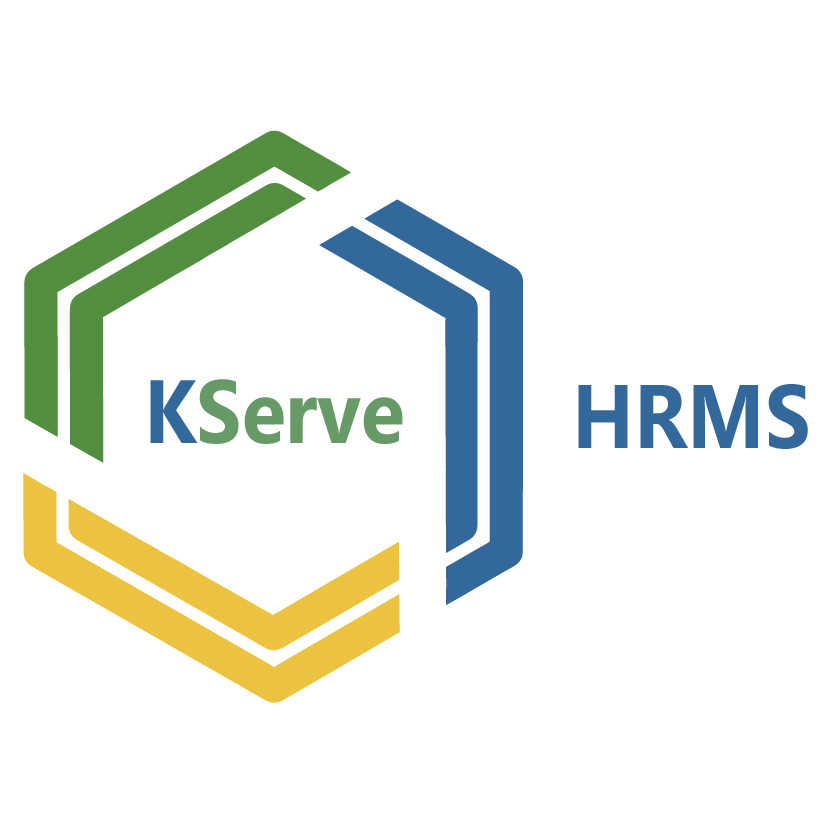Description

Homebase

SpringVerify
Comprehensive Overview: Homebase vs SpringVerify
Homebase and SpringVerify are tools with distinct primary functions, target markets, and product offerings. Here's a comprehensive overview of each:
Homebase
a) Primary Functions and Target Markets
- Primary Functions: Homebase is designed as an all-in-one solution for small businesses to manage their teams effectively. It offers scheduling, time tracking, hiring, onboarding, team communication, and payroll management features.
- Target Markets: Homebase primarily targets small to medium-sized businesses (SMBs) across industries like retail, food and beverage, service, and hospitality. Its user-friendly interface and affordability make it accessible to businesses with limited human resources management infrastructure.
b) Market Share and User Base
- Homebase has carved out a significant niche in the SMB sector due to its comprehensive feature set and ease of use combined with a freemium model. It competes with other workforce management tools but has differentiated itself through its tailored approach to small businesses.
c) Key Differentiating Factors
- Comprehensive Platform: Homebase integrates multiple functionalities (e.g., scheduling, payroll, HR) within a single platform designed for ease of use.
- Affordability: Offers a free tier with basic features, making it attractive for small businesses on tight budgets.
- User Experience: Known for its intuitive interface and robust customer support, making it easy for business owners and managers without extensive tech backgrounds to use effectively.
SpringVerify
a) Primary Functions and Target Markets
- Primary Functions: SpringVerify provides background check services for employers. It offers various verification services, including criminal checks, employment history, education, identity, and address verifications.
- Target Markets: Primarily targets enterprises and organizations looking to streamline their hiring process with comprehensive background checks. While it serves businesses of all sizes, its offerings are particularly valuable for industries that require rigorous background checks, such as healthcare, finance, and technology.
b) Market Share and User Base
- SpringVerify has a more targeted market focusing on companies that prioritize thorough vetting procedures. It is part of a competitive landscape of HR tech companies offering background verification services, with a notable presence in industries requiring stringent compliance standards.
c) Key Differentiating Factors
- Comprehensive Verification Services: Offers an extensive range of checks that cover legal, work history, educational verification, etc.
- Speed and Efficiency: Known for quick turnaround times, which is critical in fast-paced hiring environments.
- Customization and Integration: Provides customizable solutions that can be tailored to meet company-specific policies and integrates smoothly with existing HR platforms, enhancing the seamlessness of HR processes.
Comparative Perspective
While Homebase and SpringVerify operate within the broader HR tech sphere, their focuses are distinct, with Homebase concentrating on team management for SMBs and SpringVerify on background verification for organizations needing compliance support. They do not directly compete with each other but may be used in tandem by businesses with varied HR needs. Homebase attracts a larger SMB audience due to its broad utility, while SpringVerify's market lies with organizations that emphasize security and verification processes in hiring.
Contact Info

Year founded :
1986
Not Available
Not Available
United States
Not Available

Year founded :
2018
+91 90199 06005
Not Available
India
http://www.linkedin.com/company/springverify
Feature Similarity Breakdown: Homebase, SpringVerify
Homebase and SpringVerify are tools utilized for different aspects of human resource management but may share some functional overlap, especially if they're used within similar workplace environments. Let's break down the similarities and differences between these two platforms:
a) Core Features in Common
-
Employee Management:
- Both Homebase and SpringVerify can be used to manage employee information, though the scope and depth might vary. Homebase is more focused on workforce management, while SpringVerify centers on pre-employment screening.
-
User Access and Roles:
- Both platforms offer user role management, allowing administrators to assign different permissions to users based on their roles within the organization.
-
Cloud-Based Platform:
- Both tools operate as cloud-based platforms, providing users with access anywhere there’s an internet connection.
-
Integration Options:
- These products both offer integrations with other HR and management tools, though the specifics vary depending on targeted industry use and scale.
b) User Interface Comparison
-
Homebase:
- Homebase typically has a user-friendly interface designed with small to medium-sized businesses in mind. It emphasizes ease of use with intuitive scheduling, timesheet management, and team communication features. Its visual design tends to be straightforward, emphasizing functionality for everyday tasks.
-
SpringVerify:
- SpringVerify often has a more streamlined interface optimized for performing background checks and verification processes. Its design generally supports easy navigation through various verification processes and quick access to reports. The interface focuses on clarity in reporting and managing screening workflows.
c) Unique Features
-
Homebase:
- Employee Scheduling & Time Tracking:
- Homebase stands out with extensive features in employee scheduling, enabling managers to draft, distribute, and edit schedules seamlessly. The platform also includes time clock capabilities to track hours worked, compliance tools for labor laws, and payroll integration.
- Team Communication:
- Includes built-in tools for team messaging and updates, helping keep all team members in sync.
- Employee Scheduling & Time Tracking:
-
SpringVerify:
- Background Screening:
- SpringVerify specializes in pre-employment screenings, offering services like criminal records checks, credit checks, education verification, and reference checks. This feature is highly customizable based on industry needs.
- Automation in Verification Processes:
- It employs level of automation in verification processes, which improves efficiency and reduces the likelihood of human error in screening processes.
- Background Screening:
In summary, while Homebase and SpringVerify share some core HR-related features, each is tailored towards different primary functions—Homebase towards workforce management and scheduling, and SpringVerify towards pre-employment background screening. The choice between these depends greatly on the specific needs of the organization, whether it's managing existing employees or vetting new hires.
Features

Not Available

Not Available
Best Fit Use Cases: Homebase, SpringVerify
Homebase
a) Best Fit Use Cases for Homebase:
-
Small and Medium-Sized Businesses (SMBs): Homebase is particularly well-suited for small to medium-sized enterprises, like retail stores, restaurants, cafes, and service providers. These businesses often need a user-friendly, cost-effective solution to manage their teams efficiently.
-
Shift-Based Workplaces: Homebase excels in environments with hourly employees where scheduling and time tracking are crucial. Businesses such as fast-food chains, gyms, salons, and healthcare clinics benefit from its capabilities in managing shifts and ensuring compliance with labor laws.
-
Local and Franchised Businesses: Companies with multiple locations can leverage Homebase’s features to standardize scheduling and labor management across sites, making it easier to maintain consistency and control.
d) Industry Verticals & Company Sizes:
- Retail and Hospitality: These sectors benefit from Homebase’s seamless scheduling and time-clock features, reducing administrative overhead and improving operational efficiency.
- Startups and Growing Businesses: Flexibility and scalability are key for startups, and Homebase offers features that grow with the business, allowing easy management of expanding workforces.
SpringVerify
b) Preferred Use Cases for SpringVerify:
-
Businesses Focusing on Hiring Efficiency: Companies in sectors with high turnover or those requiring rigorous candidate vetting, such as technology, finance, and healthcare, can greatly benefit from SpringVerify’s background screening services.
-
Companies with Remote Recruitment Needs: In a global or remote working environment, ensuring candidate legitimacy and credentials is challenging. SpringVerify provides a streamlined verification process for remote and international hires.
-
Industries with Regulatory Compliance Needs: Organizations in heavily regulated industries like finance, legal, and healthcare require thorough background checks to remain compliant with industry standards and regulations.
d) Industry Verticals & Company Sizes:
-
Large Enterprises and Corporations: These companies often need comprehensive background checks due to their scale and the diversity of roles they hire for, making SpringVerify an excellent choice for handling large volumes of verifications.
-
Technology and Startups: Fast-moving startups, especially in tech, need efficient recruitment processes to scale quickly, and SpringVerify’s automated and robust screening services help maintain speed without compromising on quality.
In summary, Homebase suits SMBs with a need for efficient labor management, especially in the service and retail sectors, while SpringVerify is more aligned with organizations requiring rigorous background checks and efficient recruitment processing, such as those in tech, finance, and regulated industries. Both products cater to diverse needs across different industry verticals and company sizes through their specialized features.
Pricing

Pricing Not Available

Pricing Not Available
Metrics History
Metrics History
Comparing teamSize across companies
Conclusion & Final Verdict: Homebase vs SpringVerify
To provide a conclusion and final verdict on Homebase and SpringVerify, it is essential to analyze both products based on their value proposition, features, strengths, and weaknesses, as well as offer recommendations based on potential user needs.
a) Conclusion on Overall Value
Best Overall Value:
- Homebase offers the best overall value for small to medium-sized businesses (SMBs) looking for an all-in-one solution for workforce management. It not only includes scheduling, time tracking, and team communication features, but it also provides a streamlined platform for hiring and onboarding.
b) Pros and Cons of Each Product
Homebase
Pros:
- Comprehensive Workforce Management: Integrates scheduling, time tracking, and communication, which simplifies employee management tasks.
- Ease of Use: User-friendly interface, making it accessible for business operators with limited technical skills.
- Basic Hiring Functions: Includes tools for job postings and applicant tracking, which is beneficial for businesses looking to manage hiring without dedicated HR tools.
- Free Plan Available: Offers a free plan that can be particularly appealing for small businesses.
Cons:
- Limited Background Check Features: While it provides some hiring functionalities, its background check capabilities are not as robust as specialized services.
- Scalability Issues: Might not be the best fit for large enterprises with complex workforce management needs.
SpringVerify
Pros:
- Specialized Background Checks: Excels in providing detailed, reliable background screening, offering a wide range of options from employment verification to criminal history checks.
- Customization Options: Allows for tailoring the checks to fit specific industry requirements, ensuring relevance and compliance.
- Fast Turnaround Time: Generally provides quick results, which is crucial for time-sensitive hiring processes.
Cons:
- Niche Focus: Primarily focused on background checks, which means it lacks broader HR management functionalities.
- Learning Curve: Some users might find the initial setup and customization options challenging without adequate support.
c) Recommendations for Users
Choosing Between Homebase and SpringVerify
-
For Small to Medium Businesses: If your primary need is efficient workforce management with a secondary requirement for simple hiring processes, Homebase is the recommended choice. It provides greater overall value for managing daily operations and is cost-effective, especially for businesses on a budget.
-
For Businesses with Hiring Focus: Companies that require in-depth background checks and value comprehensive screening as part of their hiring process should consider SpringVerify. This is particularly beneficial for sectors with high compliance demands, such as healthcare or finance.
-
Evaluate Needs and Budget: Users should assess their primary business needs—whether they lean more towards ongoing staff management or comprehensive hiring—and consider their budgets. If both functionalities are crucial, they might consider integrating both services, utilizing SpringVerify for detailed checks alongside Homebase for day-to-day workforce management.
Ultimately, the choice depends on specific business needs, priorities, and resources, with Homebase offering a versatile solution for management, and SpringVerify excelling in detailed employee vetting.
Add to compare
Add similar companies




